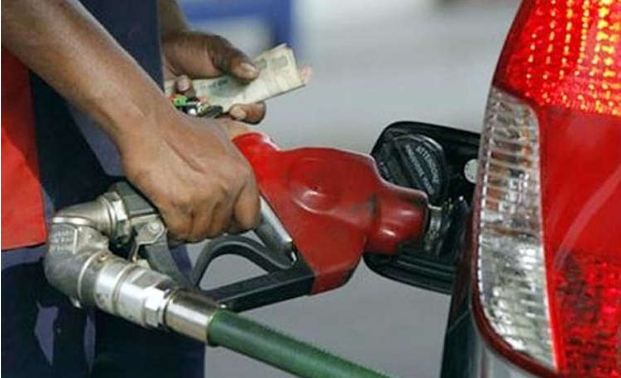Petrol Price in Lagos, Kano, Ogun, and others amid total deregulation in Nigeria has emerged.
NewsOnline Nigeria reports that the full deregulation of Nigeria’s petrol sector has left citizens grappling with skyrocketing fuel prices, which vary widely across regions and filling stations.
With prices reaching unprecedented highs, many Nigerians are feeling the impact of these changes in their daily expenses, intensifying the ongoing cost-of-living crisis.
ALSO: ‘Women Are Less Corrupt, They Are More Determined’ – Peter Obi
The recent increase in fuel prices is largely attributed to President Bola Tinubu’s administration’s full implementation of the Petroleum Industry Act, which ended government subsidies and the Petroleum Equalisation Fund.
Before deregulation, the subsidy helped stabilize fuel prices nationwide, regardless of regional disparities. Since the policy shift, petrol prices have soared, leaping from ₦190 per litre in May 2023 to over ₦1,100 in some areas, marking a 450% rise in less than two years.
This price surge has had a ripple effect on inflation, causing the cost of basic goods and services to become unaffordable for many Nigerians. As inflation climbs to record levels, everyday citizens report struggling to keep up with escalating prices for necessities.
The country’s reliance on imported petrol due to non-operational state refineries has been a significant factor in rising fuel costs.
Despite hopes that the newly completed 650,000-barrel-per-day Dangote Refinery would bring relief, prices have continued to climb, particularly after the Nigerian National Petroleum Company Limited (NNPCL) withdrew from its exclusive supply agreement with the refinery.
A recent survey of petrol stations by Premium Times found significant price disparities across states, influenced by factors such as distance from supply depots, transportation expenses, and local demand.
For instance, petrol prices in certain northern regions are notably higher than those in the south, adding to regional economic disparities.
For instance, in Nigeria’s commercial capital, Lagos, NNPC retail outlets were selling at ₦998, the lowest price in the country, due to proximity to supply depots. But the same outlets sell at N1,030 per litre in Abuja, the federal capital.
NNPC sold at ₦1,050 in Nasarawa, ₦1,060 in Kano, ₦1,060 in Akwa Ibom, ₦1,025 in Ogun, and ₦1,065 in Enugu.
The average pump price of a litre of petrol in NNPC filling stations in the country was ₦1,038.
In Kano, Total Energy sold at ₦1,130 a litre, but in Uyo, it sold at ₦1,149. However, for A. A. Rano, the pump price was the same in the two cities – ₦1,150 a litre.
It is unclear what is responsible for the parity in A. A Rano pump price despite the geo-political location of both cities.
Rain Oil sold at ₦1,250 a litre in Nasarawa State, ₦1,200 in Uyo and ₦1,100 in Ogun State.
Adrova PLC at Wuse Zone 1 Abuja sold at ₦1,100 per litre, Amasco in Nasarawa State at ₦1,200, and Alhaji Isa, New Nyanya, at ₦1,200.
In Akwa Ibom, AP retail outlets in Uyo were selling at ₦1,145 per litre, while Tran-Sossa and Earthwell outlets sold at ₦1,240 and ₦1,250, respectively, at the time of the survey.
In Lagos State, AP and Mobil sold at ₦1,090 and ₦1,100, respectively, for the same quantity.
In neighbouring Ogun State, the NNPC outlet in Olowotede sold at ₦1,025 a litre. In the same area, other retail outlets, including Rain Oil, sold at ₦1,100 and Rock Oil at ₦1,200.
In Enugu, south-east Nigeria, a Mobil filling station along Zik Avenue was selling at ₦1,200. In contrast, Chritin Petroleum Company, located along Obiagu Road in Enugu, sold at ₦1,220 when a Premium Times visited.
